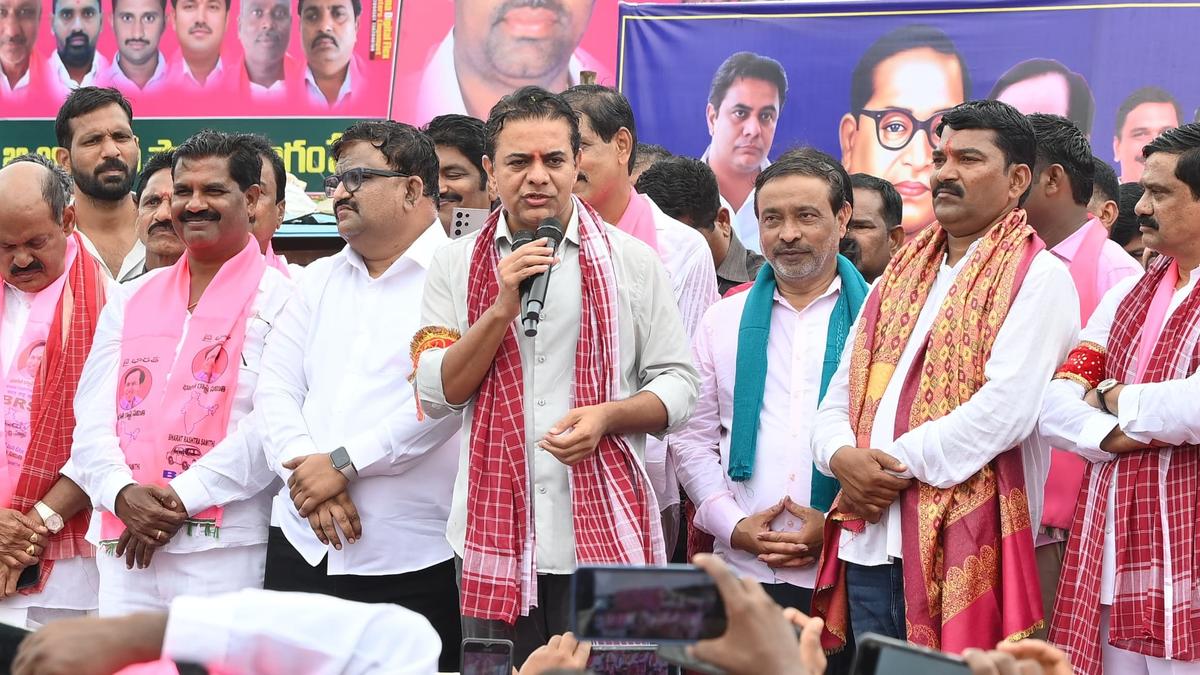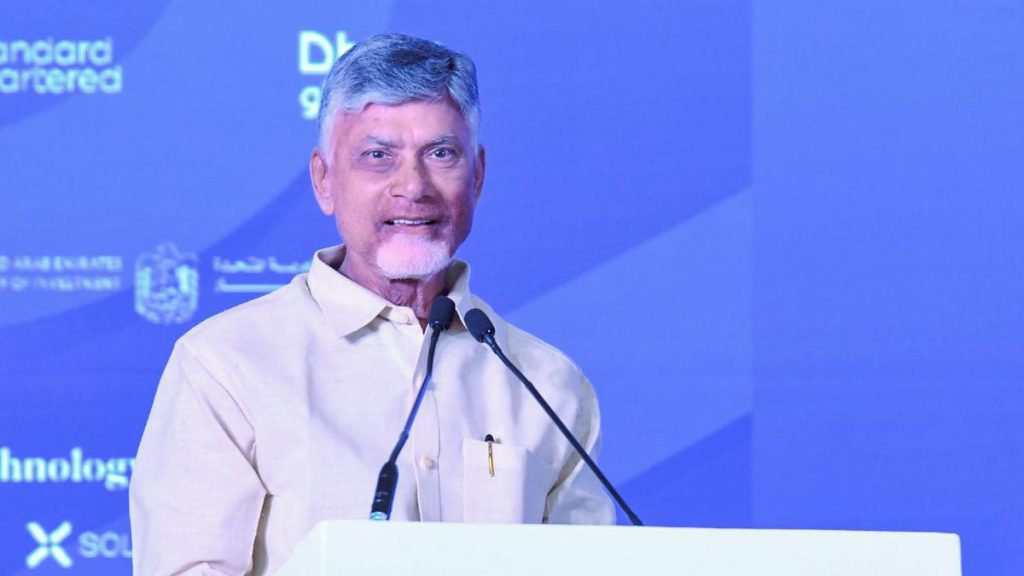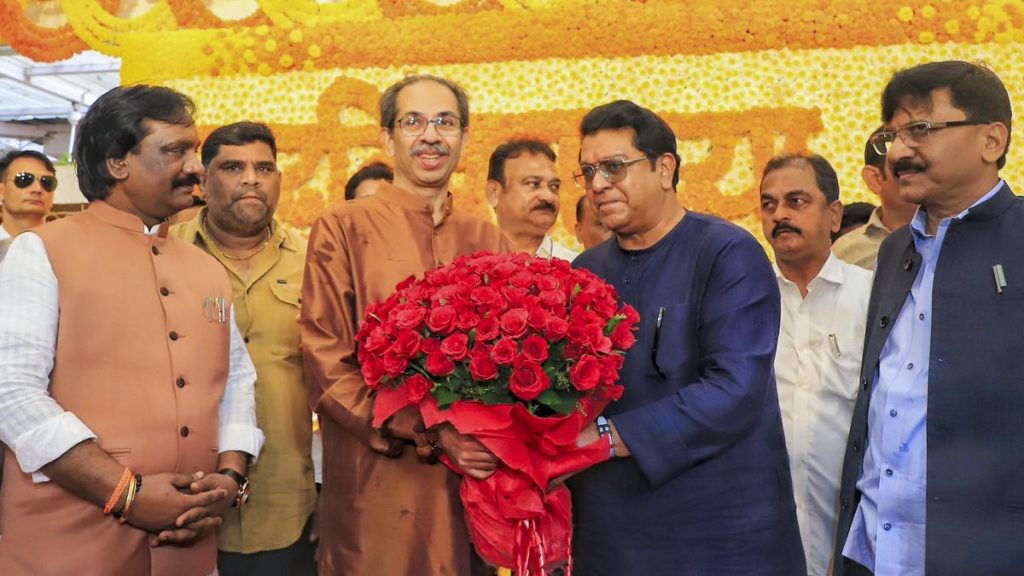Now Reading: KTR Slams Congress Manifesto, Calls It ‘Biggest Betrayal of the Century
-
01
KTR Slams Congress Manifesto, Calls It ‘Biggest Betrayal of the Century
KTR Slams Congress Manifesto, Calls It ‘Biggest Betrayal of the Century

Quick Summary
- BRS working president K.T. Rama Rao criticized the Congress party, calling its manifesto “the biggest lie of the century,” accusing it of betraying various sections of telangana society, including Dalit and tribal communities.
- At the ‘Dalit Atmagourava Sabha’ in Kamareddy district, Rama Rao alleged that congress failed to implement welfare promises such as the SC/ST Declaration announced by AICC president Mallikarjun Kharge.
- he credited telangana’s statehood movement to Article 3 of the Constitution led by B.R. Ambedkar’s team and stated KCR mobilized people over 14 years to achieve statehood.
- Highlights were made about KCR naming Telangana Secretariat after Dr.Ambedkar and installing a 125-foot statue honoring him-the tallest such tribute in India.
- allegations against Revanth Reddy’s governance included poor-quality food provision in residential educational institutions resulting in over 100 student deaths within 20 months, contrasting with previous improvements made under BRS leadership.
- Rama Rao accused Congress leaders like Revanth Reddy of failing to fulfill welfare promises including increasing Dalit Bandhu assistance amount from ₹10 lakh to ₹12 lakh, contractual work allocations for SC/ST communities (26%), and housing monetary aid promises-all allegedly not delivered.
- Multiple leaders participated in the event; during it,Rama Rao felicitated M. sayilu after police insult during a Dr. Ambedkar anniversary party earlier this year.
Indian Opinion Analysis
This speech highlights intensifying political rhetoric as telangana gears up for elections.Statements accusing opposing parties-particularly congress-of unfulfilled promises are standard during campaign cycles; however, pointing out specific failures regarding SC/ST welfare could resonate strongly with marginalized communities especially aligned with Dalit empowerment themes.
Rama Rao’s emphasis on achievements like Dr.Ambedkar tributes may serve as strategic social signaling aimed at cultivating broader respect among voters inclined toward symbolic governance tied robustly into identity politics.
Allegations regarding issues within residential institutions (e.g., student deaths due lack good food service) were striking though merit autonomous verification amidst claims aimed undermining rivals heavily placed onto administrations’ social-basis fairness-policy inability perceived handling key public grievances sustainable future models anticipated precursory doubtful unchanged systems oversight mechanisms accountable resolutions resort transparency linkage!
Read more: The Hindu























